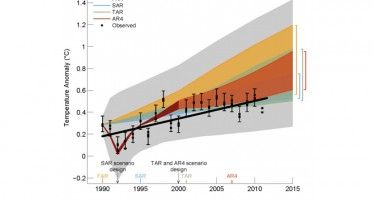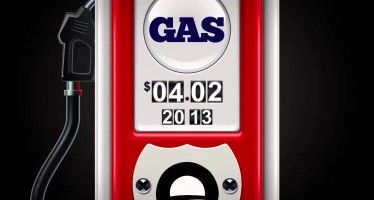Gov. Brown: To drill or not to drill?
April 8, 2013
By Katy Grimes
California could become the next oil boom state. Will Democratic Gov. Jerry Brown and a Democratic supermajority in the state Legislature seize the day — and the tax revenue that would come with drilling and fracking? Or will excessive environmental concerns block the development, the jobs and the revenues?
I’ve been saying for months now, if Gov. Brown doesn’t want to go down as the leader responsible for driving the silver stake into the heart of the state of California, he has one option: he can always turn to oil fracking and save the state. Just the mere mention of this dramatic policy change would impact financial markets.
California oil = jobs + tax revenues
California sits on two-thirds of America’s shale oil reserves. The Monterey Shale Formation is four times the size of the Bakken Shale Reserve in North Dakota, which is now the largest oil producer in the country behind Texas.
Along the Western side of the San Joaquin Valley in the middle of the state, the Monterey Shale Formation encompasses several hundred miles, where water has dried up and unemployment is the highest in the state.
North Dakota has a monthly oil output of nearly 20 million barrels, and accounts for 11 percent of U.S. oil production. But California quickly could produce 15 million barrels a month more using today’s technology. Many experts estimate as much as 400 billion barrels of oil are in the Monterey Shale Formation.
The oil boom in North Dakota spurred the state’s $3.8 billion surplus and is responsible for the declining unemployment rate, currently at 3.2 percent, the lowest in the nation.
California’s unemployment still hovers at 9.8 percent, and is tied for the worst rate in the nation with Nevada. “Over the last 20 years, 3.6 million more Americans have moved out of California than have moved in, and 130,000 more Americans have moved from Hawaii than to it,” reported “Rich States, Poor States,” authored by Arthur Laffer, Stephen Moore and Jonathan Williams.
This is what’s known as a teaching moment.
California has implemented no real reform policies in recent years to promote jobs. Currently, Brown has not seemed to be interested in making any of these pro-growth economic moves as he pushes high-speed rail and the implementation of AB 32’s radical climate change policies.
“However, if Brown merely adopted the tax reform policies of Kansas, California would see immediate improvement in the business sector, job growth and unemployment rate,” I wrote recently.
“Kansas flattened the income tax, dropped three tax brackets to two, lowered the income tax rate from 6.45 percent to 4.9 percent, and eliminated personal income tax for small business owners,” explains “Rich States, Poor States.”
In lieu of the pro-growth policies in Kansas, oil revenues would be fruitful.
Oil jobs
California’s financial house is a mess. But the Golden State is sitting on a lot more oil and jobs than the state has seen in decades.
“Gov. Jerry Brown yields to no one in his enthusiasm for green energy, but he knows black gold when he sees it,” Investors Business Daily recently wrote. “Witness his remarks last Wednesday at an event announcing three new renewable energy projects: ‘We want to get the greenhouse gas emissions down, but we also want to keep the economy going. That’s the balance that’s required.’”
A recent study found that exploiting Monterey shale could generate up to 2.8 million new jobs and add 14 percent to the state’s GDP by 2020, near the peak of production.
The University of Southern California researchers and the Communications Institute, a Los Angeles-based think tank, found those new jobs would include many outside the actual shale formation. But most of the new employment would be near the drilling — in the counties that have some of the highest unemployment in the state.
High-speed rail false jobs
Brown knows where jobs are needed the most, and high-speed rail won’t provide these. Oil can and will do far more for the Central Valley and state than Brown’s train, where the only jobs are going to well-connected union contractors and public relations firms.
If the California Environmental Quality Act can be exempted to build sports stadiums, California’s politicians should use their power for good, and tell the environmentalists to sit back and enjoy the economic oil boom.
Related Articles
Now UN says global warming exaggerated
On our site and elsewhere, global warming/climate change defenders say almost 100 percent of “climate scientists” maintain global warming/climate change
Mitt Romney on rising gas prices
Nov 1, 2012 Mitt Romney weighs in on rising gas prices:
CA: 8 Cities in Top 10 Unemployed
John Seiler: What economic recovery? Of the Top 10 worst cities for unemployment in the United States, eight were in






